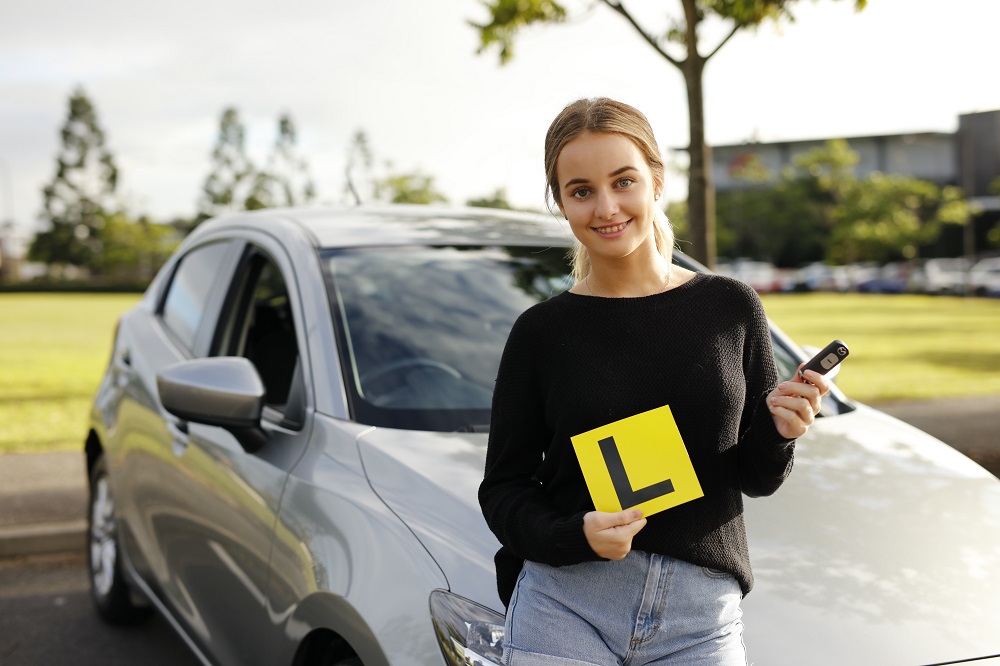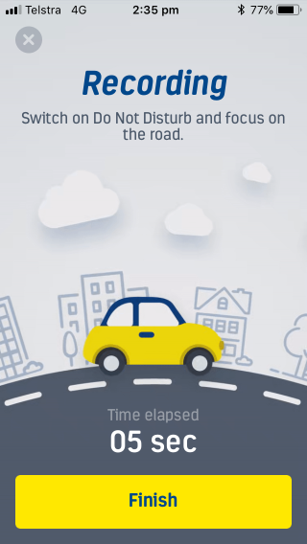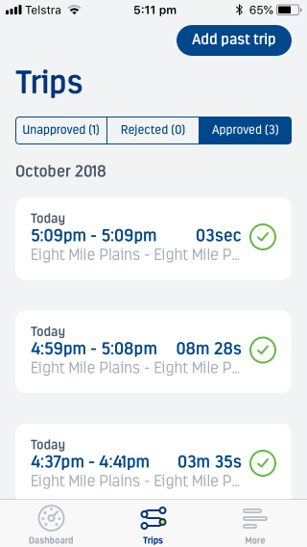Help your kids log their driving hours

Your child or a young driver you know has finally obtained their learner licence and is ready to hit the open road.
This can be an exciting and scary time, given some of the dangers on the roads.
As a supervisor, you have a very important role to play in helping them record practice hours. They will learn their habits and mannerisms from you, so make sure you’re teaching them the correct way to become a confident and skilled driver.
Here are some valuable tips and services that can help guide them to driving success.
Download the RACQ Learner Driver app
With RACQ’s app, learners can log their hours without the risk of losing the record. Best of all, drivers can actively track their progress and submit their hours directly to the Department of Transport and Main Roads.
Learners can also manage multiple supervisors in the app for those circumstances when they’re learning to drive and have various supervisors – parents, friends, relatives and driving schools. Supervisors can set their own unique, four-digit pin which is required to approve any drive.
Learners also gain access to exclusive RACQ content through the app, including videos and explanations on driver skills and manoeuvres needed for their P-plate test.
RACQ's Learner Driver app is now available to download from the App Store and on Google Play.


Score a free driving lesson
Keys2drive is an Australian Government-funded program that provides one free driving lesson to learner licence holders who, together with their parent/supervisor, visit an accredited Keys2drive professional instructor.
The free, 60-minute lesson introduces learners to the Keys2Drive learning approach ‘Find Your Own Way’. The remaining lesson time is dedicated to practical demonstrations of these skills while the learner is driving.
Parents and supervisors will come away with the tools to help learner drivers set a good foundation for lifelong safe driving and may even help alleviate some of their own bad habits.
Use an RACQ-accredited driving school
Once your learner has claimed their free lesson, be sure to continue their professional training with an RACQ-accredited driving school.
RACQ’s network of approved driving schools help novice drivers take the right steps towards establishing correct driving skills, knowledge and behaviour. A full list of available schools can be found here.
The first 10 hours a learner does with an accredited driving instructor is tripled meaning they can accumulate 30 hours in no time.
RACQ’s five handy supervisor tips:
1. Encourage the learner to concentrate on the car and the road, while you act as an extra pair of eyes to help them anticipate potential hazards.
2. Start slowly. Give them plenty of practice in non-threatening situations – like quiet suburban streets (outside peak periods) or a deserted parking lot – and don’t take them into difficult situations before they are ready.
3. Do your homework. Understand and reinforce the correct driving techniques taught by the driving school.
4. As they gain experience, introduce them to more demanding driving situations – like driving on busier roads and highways, night driving, wet weather driving and driving on unsealed roads. Remember, your learner driver must log at least 10 hours of night driving before they can go for their provisional license.
5. Where possible, use the same vehicle to produce consistent performance, encouragement and feedback. For the same reasons, it’s also best to stick with one supervisor.
Get a free driving lesson with Keys2drive
Related topics
Things to note
The information in this article has been prepared for general information purposes only and is not intended as legal advice or specific advice to any particular person. Any advice contained in the document is general advice, not intended as legal advice or professional advice and does not take into account any person’s particular circumstances. Before acting on anything based on this advice you should consider its appropriateness to you, having regard to your objectives and needs.

